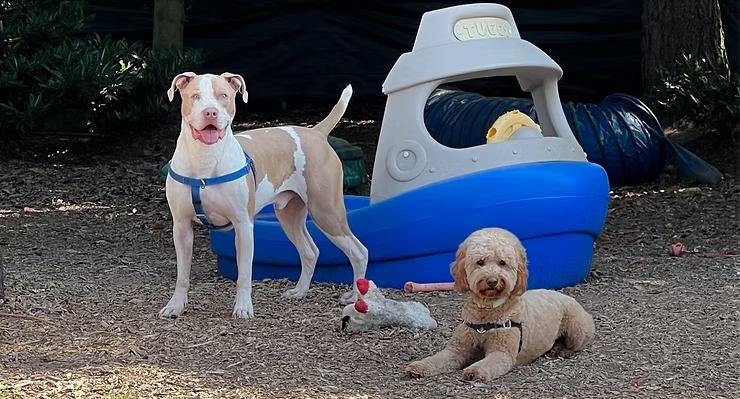Mercifully, his insurance will probably reimburse most of it and I’m lucky I was able to pay that sum upfront. But an increasing number of Americans have had to surrender their pets to animal shelters because they can’t afford their care and, as a result, shelters are in crisis.
In the past decade, veterinary prices have increased more than 60 percent, according to federal data. At the same time, large corporations and private equity companies have gone on a shopping spree in the industry, taking over hundreds of vet clinics all over the country.
Enter two US senators from New England, Elizabeth Warren of Massachusetts and Richard Blumenthal of Connecticut, who have taken steps to hold private equity firms JAB Holding Co. and KKR accountable for the impact of their acquisitions of veterinary practices on quality of care and costs. JAB, which is the biggest investor in Krispy Kreme and Pret A Manger, owns National Veterinary Associates and its more than 1,000 vet practices across the country. JAB also owns more than 20 pet insurance brands.
“Private equity and big corporations are taking over independent vet practices and squeezing pet owners for every last cent,” Warren said via an emailed statement. “I’m pressing for answers about what’s behind the astronomical prices for pet owners, decreasing quality of care, and how these companies’ enormous power is harming workers as well.”
On Monday, Warren and Blumenthal’s crusade against the corporatization of vet care charged ahead, and now they have their sights set on Mars Inc., the storied global candy conglomerate that, in addition to Skittles, Snickers, and M&M’s, also happens to be “the biggest vet provider in the country” with networks like BluePearl Pet Hospital and VCA Animal Hospitals under its umbrella, as well as food brands like Royal Canin and Pedigree.
In a letter to the company, the senators wrote that as of last year, “Mars Petcare owned nearly half of all corporate-owned veterinary clinics.” But it is the company’s vertical integration and its potential misuse of noncompete agreements that concerns the lawmakers the most. Mars has acquired over a dozen other pet businesses, including diagnostics and pet technology, “giving the company greater dominance in the pet industry and possibly increasing the cost of pet ownership.”
Much like their missives to JAB and KKR, Warren and Blumenthal asked for increased transparency from Mars Petcare. They requested a list of all the veterinary clinics that the company has acquired since 1994 and their total revenue; average salary per veterinarian; and, among other business practices, whether the company incentivizes its clinics to order laboratory testing at Mars-owned diagnostic labs.
A Mars spokesperson said in an email that as “a family-owned business with nearly 90 years of experience and heritage caring for pets, we work to positively impact pets and the people who care for them” and that its “long-term commitment to the veterinary profession gives us the incentive to create a sustainable profession.”
Dr. Karen Holmes has owned her own vet practice in Walpole for a decade. She told me that an increase of acquisitions — both from private equity and corporate players — has been noticeable in the region. “We see it in our clinic, and it’s people wanting to come to us,” she said. “People notice the change in care.”
Holmes also said that during the COVID-19 pandemic she used to get offers “three times a week” from prospective buyers. “Sometimes in these practices [owned by private equity or corporate America] I hear stories about doctors seeing appointments every 15 minutes,” Holmes told me. “That’s crazy to me. How do you build a trust relationship with a client in a 15-minute appointment?”
This brings me to the vet clinic I took my senior dog to last week — it is owned by Mars. Holmes told me that for one of the more basic tests my dog had last week she charges roughly half of the more than $400 I paid.
Asked about the price difference, a Mars Petcare spokesperson said their teams “have the clinical freedom to prioritize pet healthcare needs, tailoring their recommendations” for each pet “regardless of service provider or brand.”
Sadly, these exorbitant vet visits are becoming the norm for most pet owners. When I first wrote about Warren’s efforts targeting Big Vet, readers eagerly shared their frustrating experiences via email and on social media. “[Private equity firms] made having babies too expensive, now they made quality pet care a lifetime a debt,” a reader wrote online.
I also heard from a married couple who owned a veterinary practice that had been in business in Western Massachusetts for nearly 40 years. They sold to a private equity group late last year, they said, but the couple had been under the impression that it was four veterinarians buying their clinic. “Subsequently they fired us and closed the practice,” the couple wrote. Another reader wrote to flag a similar story that happened in Lynn two years ago.
Warren and Blumenthal’s increased oversight notwithstanding, the corporate consolidation in the industry continues unabated. What can one do as a pet owner? “It’s really important for them to feel empowered to ask questions about things like pricing, who owns the practice, and, ‘Is there a way that I can get this blood work done more cheaply?’ ” Holmes said.
And for practices that have maintained their private status, like Holmes’s, she had a blunt message. “We have to just accept that we’re not going to have huge profit margins. You have to ask yourself, ‘How much of a margin do you really need?’ ”
Marcela García is a Globe columnist. She can be reached at marcela.garcia@globe.com. Follow her on X @marcela_elisa and on Instagram @marcela_elisa.





